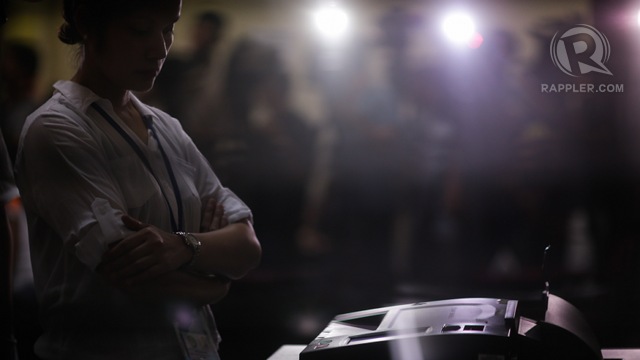SUMMARY
This is AI generated summarization, which may have errors. For context, always refer to the full article.

MANILA, Philippines – Ending doomsday scenarios, Commission on Elections (Comelec) chair Sixto Brillantes Jr on Wednesday, February 13, ruled out the possibility of manual elections amid a legal dispute over ballot-counting machines.
In an interview with reporters, Brillantes made this assurance after a technical evaluation committee (TEC) report – which was due Wednesday – certified that the entire automated process “is okay, beginning to end.”
The catch is, “there is no source code to be reviewed” – something which election watchdogs have based doomsday scenarios on.
“Manual is already impossible. With the certification issued by the TEC, we’re going to proceed, automated, no matter what happens. Source code is there or not – better if it’s there, not necessary if it’s not,” Brillantes explained.
The Automated Elections Law requires a review of the machine source code, the “human readable instructions that define what the computer equipment will do.” The law mandates the Comelec to “promptly make the source code of that technology available and open to any interested political party or groups which may conduct their own review thereof.”
But SLI Global Solutions, which holds the source code, could not release it due to a legal dispute between two companies – Smartmatic, which sold the Comelec its PCOS machines, and the US-based Dominion Voting Systems, which owns the system that Smartmatic used. Dominion prohibits SLI from releasing a source code.
An election watchdog’s question about this prompted Brillantes, a week ago, to almost walk out of a joint oversight congressional committee (JCOC) hearing.
‘Brewing problem’
In an interview with reporters Monday, February 11, Brillantes described this as a “brewing problem,” particularly if election watchdogs question the absence of the source code before the JCOC. He said that if the Comelec fails to meet the source code requirement, the JCOC may compel it to revert to manual polls.
On Wednesday, however, Brillantes said he re-read the law afterwards, and came up with a “liberal interpretation.” He said the law only requires the Comelec to submit a report to the JCOC. “There is even no need to convince the JCOC to convene and approve it,” he explained.
Besides, he added, the 2010 elections proceeded even without a source code review.
“Which means the source code is not really that important. We can conduct the elections based on what is known as the binary, which is really the machine readable instructions, and we can proceed,” Brillantes said.
When asked about the rationale behind the source code requirement, Brillantes explained: “It’s important that somebody, independent local IT experts will be able to review and see that it’s okay.”
He noted that the source code has received international certification. “What is important is the international certification, which is totally independent,” he said.
He said the Comelec, however, is still negotiating with Dominion to allow SLI to release the source code. This will allay fears among detractors, he said. – Rappler.com
Add a comment
How does this make you feel?
There are no comments yet. Add your comment to start the conversation.